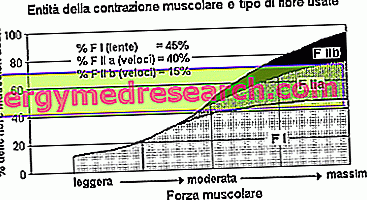What is Secretin
Secretin is a peptide hormone of 27 amino acids, with a particular role in the history of physiology: released by S cells of duodenal crypts, secretin is the first hormone discovered by man, thanks to studies by Bayliss and Starling in 1902.
The release of secretin is stimulated by the descent of the gastric pH, hence by the increase in the acidity of its contents. Not surprisingly, secretin acts primarily on the pancreas, stimulating it to secrete a diluted pancreatic juice rich in bicarbonate, which is very important for buffering the acidity of the gastric chyme. This mechanism, in addition to ensuring optimal conditions for the activity of digestive enzymes (which work best at slightly basic pH), protects the duodenal mucosa from the insult of the acidity of the chyme.
Functions

The action of secretin is comparable to that of a fireman; it is in fact released in response to the increased acidity of the digested material coming from the stomach (gastric chyme), which would risk "burning" the mucosa of the proximal tract of the small intestine (called the duodenum).
To extinguish this fire, secretin stimulates the liver and pancreas to release secretions rich in liquids and bicarbonates.
The release of secretin is stimulated - in addition to the acidity of the kilo coming from the pylorus - also by the presence of free fatty acids and bile salts. When the pH of the duodenum approaches neutrality (> 4.5) the release of secretin is inhibited, since the organism no longer needs its biological action.
In addition to pancreatic level, secretin also acts on the liver, stimulating bile production. With paracrine effect, this hormone also promotes the glandular secretion of the duodenum (Brunner's glands), always with the aim of buffering the acidity of the chyme. At the same time it acts on G cells assigned to gastrin secretion, reducing its activity and consequently increasing the gastric pH.
Secretin also enhances the action of cholecystokinin, a hormone that stimulates the synthesis of pancreatic hormones and promotes the secretion of bile in the intestine.
Recently it has been discovered that secretin is also released from the posterior pituitary in response to an increase in plasma osmolarity, and goes to act hypothalamically favoring the synthesis and release of vasopressin (ADH). This last hormone is also called antidiuretic because it opposes the production of urine, conserving water in the body; its action is therefore important when the osmolarity of the plasma increases (ergo when it becomes more concentrated, and therefore poorer in water).
Secretin stimulus test
The intravenous or intraluminal injection (in the duodenum via a tube) of secreatin is practiced in the diagnostic setting to study the responses of organs sensitive to its action, first of all the pancreas. In cases of suspected pancreatitis, cystic fibrosis, pancreatic insufficiency, pancreatic tumors and gastrinoma, the secretin stimulus test can provide important information on organ health. For example, it is possible to aspirate pancreatic juices from the duodenum, released there thanks to the stimulation of secretin administered into a vein, and analyze them in the laboratory for the diagnosis of pancreatic insufficiency (although for this purpose the dosage of chymotrypsin in feces is often preferred). In the presence of gastrinoma (a gastrin-secreting pancreatic hormone), the intravenous injection of secretin greatly increases gastrin (gastrinemia) levels; this does not happen in the healthy patient, since in normal conditions gastrin is mainly produced at the gastric level, and its release is not significantly influenced by secretin.



